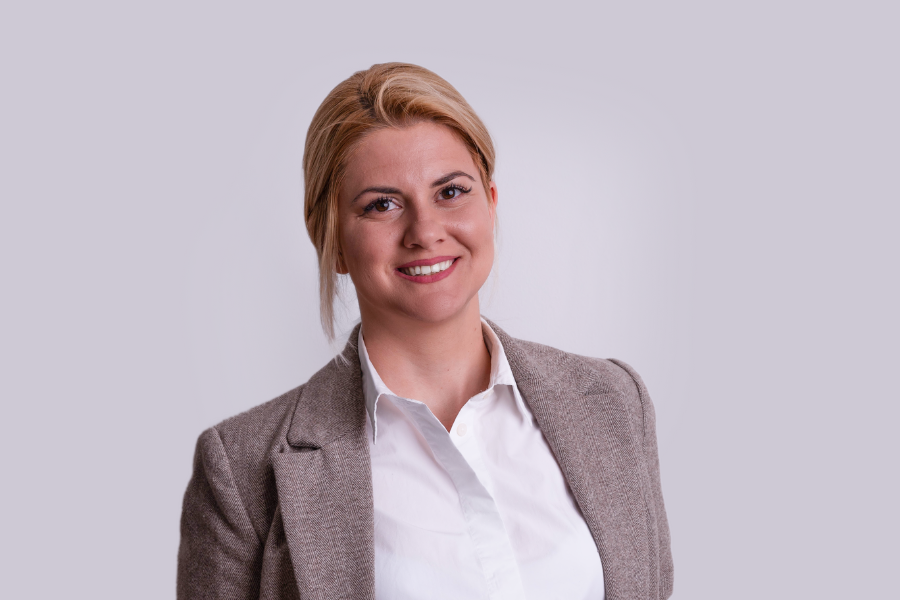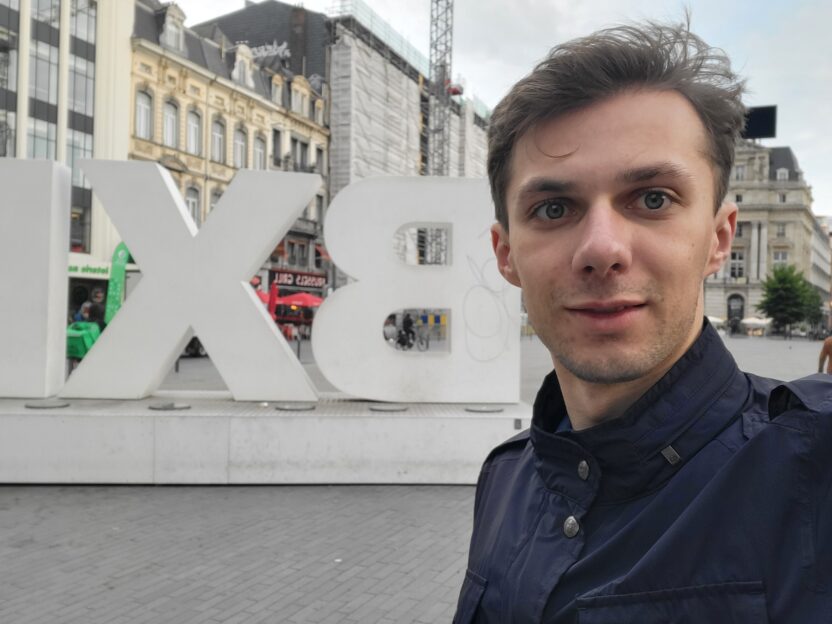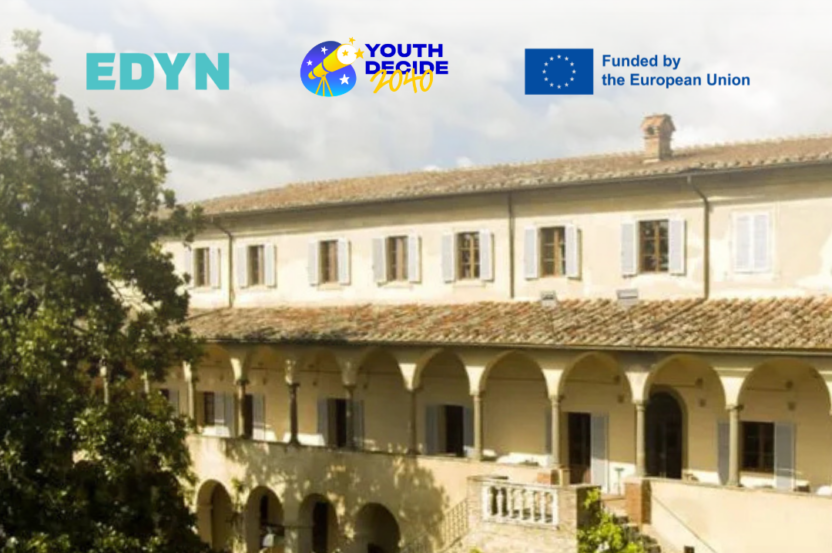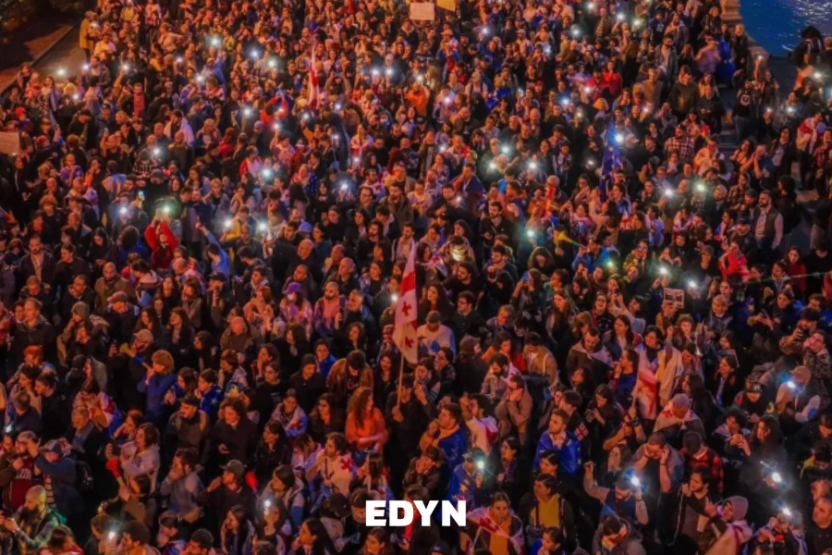This day marks 35 years since the fall of the Berlin Wall, a defining moment that opened the door to democracy in Croatia. While the country has progressed, it now faces new challenges, including rising nationalism and political extremism. For younger generations, who never experienced life under a regime, democracy may seem like a given. But are they fully engaged in shaping it?
We spoke with Gabriela Bosnjak, an entrepreneur and member of the Presidency of the Croatian Social-Liberal Party. Active in various initiatives, including the European Democracy Youth Network, she advocates for democratic and economic reforms while empowering young people to engage in politics and public life.
In our conversation, Gabriela shared her insights on how today’s youth perceive democracy, the critical role of civic engagement, and the obstacles they face in upholding the democratic ideals that many have fought to achieve.
Thinking back to the fall of the Berlin Wall, how do you imagine your life and career might be if that hadn’t happened?
“If the Wall hadn’t fallen, I believe my life would be limited in many ways. I’d likely find myself in a highly restricted environment with limited opportunities for personal expression and growth. In a closed society, my career paths would have been dictated by others, and the freedoms crucial for individual and professional development would have been nonexistent. The open society I strive for today might not even be a possibility; my role might have been limited to administration under strict state control, unable to pursue my liberal values openly. This really underscores how essential freedom is—not just to my work but to my identity as well.”
How do you think young people today, who didn’t live under an oppressive regime, view democracy? Do you think they might take it for granted?
“It is possible, many young people see democracy as a given, something that’s just always been there. I think without firsthand experience of oppression, it’s easy to overlook how fragile democracy can be. We really need to create opportunities—through civic activities and discussions—that help them see the real, tangible benefits of democracy—especially the freedom to make independent choices and voice their opinions -what’s at stake if democratic norms are ignored.”
From your perspective, what are the key democratic issues that young people in Croatia feel need more attention?
“For young Croatians, economic opportunity, transparency, and educational reform are high on the list. We crave clear and accessible pathways to improve our lives, which includes a transparent government we can trust. Many feel that the state does not provide enough support to help young entrepreneurs and professionals succeed, and that our education system lacks the practical and critical-thinking skills needed in today’s world. We see these issues as fundamental to making democracy more inclusive and effective.”
You’ve been actively involved in public life in Croatia. Why do you believe it’s important for young people to engage in public life? What advice would you give them?
“Engagement in public life is crucial. It gives young people a direct stake in the future, and is vital for a healthy democracy.. I’d advise young people to explore civic roles, not just as a means of making their voices heard but also to understand how public policy impacts real lives. By actively participating in their communities, they can see the effect of good governance and develop leadership skills that will benefit them and society as a whole.”
With democracy also comes the freedom to travel and participate in various international programs. Have you attended any and if yes, what have you personally gained?
“Yes, I have been fortunate to attend several international forums and seminars focused on liberalism, leadership and democracy. These experiences have broadened my understanding of different democratic systems and governance models and reinforced my commitment to open society principles. I’ve gained practical skills in diplomacy and advocacy that are vital in today’s interconnected world.”
What do you think are some effective ways to get young people involved in politics and civic activities? How can we better engage them?
“We can engage them by meeting them where they already are—on social media and in digital spaces. Education is also key; I believe schools should prioritize civic knowledge as a core part of the curriculum. I also think mentorship can be incredibly powerful. By connecting young people with experienced leaders in their communities, we create pathways for them to see the real, positive impact of civic involvement.”
How do you think Croatia’s past experiences with oppression still affect people’s trust in today’s government and democratic system?
“Croatia’s history has led to a complicated relationship with government and authority. Many people remain skeptical, fearing that any shift could lead back to restrictive governance. This mistrust breeds apathy and disengagement. To counter this, we need to foster transparency and build trust, showing that the system is responsive and accountable to all citizens.”
As a young person in politics, what first drew you to public life ? Did you face any challenges along the way?
“What drew me to public life was the idea of being part of the solution, rather than just a passive observer. I wanted to contribute to a society where individual freedoms are protected, and where everyone has equal opportunities to succeed. Of course, there have been challenges—from generational skepticism to structural obstacles in a sometimes rigid system. But perseverance and commitment to democratic ideals have guided me through. When you see the tangible impact of good governance, even in small ways, it makes it all worth it.”
Nationalist and extremist movements are rising across Europe. Do you think these trends are a threat to democracy?
“Absolutely, these trends pose a real threat. Nationalism, when unchecked, can undermine unity and human rights, while disinformation erodes public trust. Democracy is resilient, but only if people actively work to protect it. We need both legal frameworks and societal awareness to counter disinformation, and we must promote tolerance and inclusivity. Democracy thrives when we prioritize openness and diversity over divisive ideologies.”
Some people look back on the Socialist era with nostalgia. What challenges does this nostalgia pose for building an inclusive democratic future in Croatia?
“Yes, nostalgia can definitely be problematic, especially when it idealizes a system that restricts personal freedoms. It can create a distorted view of governance that overlooks the lack of individual agency during that time. Educating the public about the importance of democracy and the opportunities it provides is essential to countering this. We need a balanced perspective on our past to move forward with a strong commitment to democratic values.”
How can Croatia use its history, both the good and the bad, to strengthen its democratic culture going forward?
“Croatia’s history is rich with lessons on resilience and adaptability. By embracing the positive aspects of our past and learning from our mistakes, we can foster a democratic culture that values freedoms and inclusivity. It’s about building on our strengths and ensuring that our future remains open, tolerant, and continuously improving—one where we move forward together..”
This article was written as part of the #ThankYouDemocracy campaign, in collaboration with the Global Democracy Coalition, to highlight the importance of protecting and promoting democratic values around the world.



